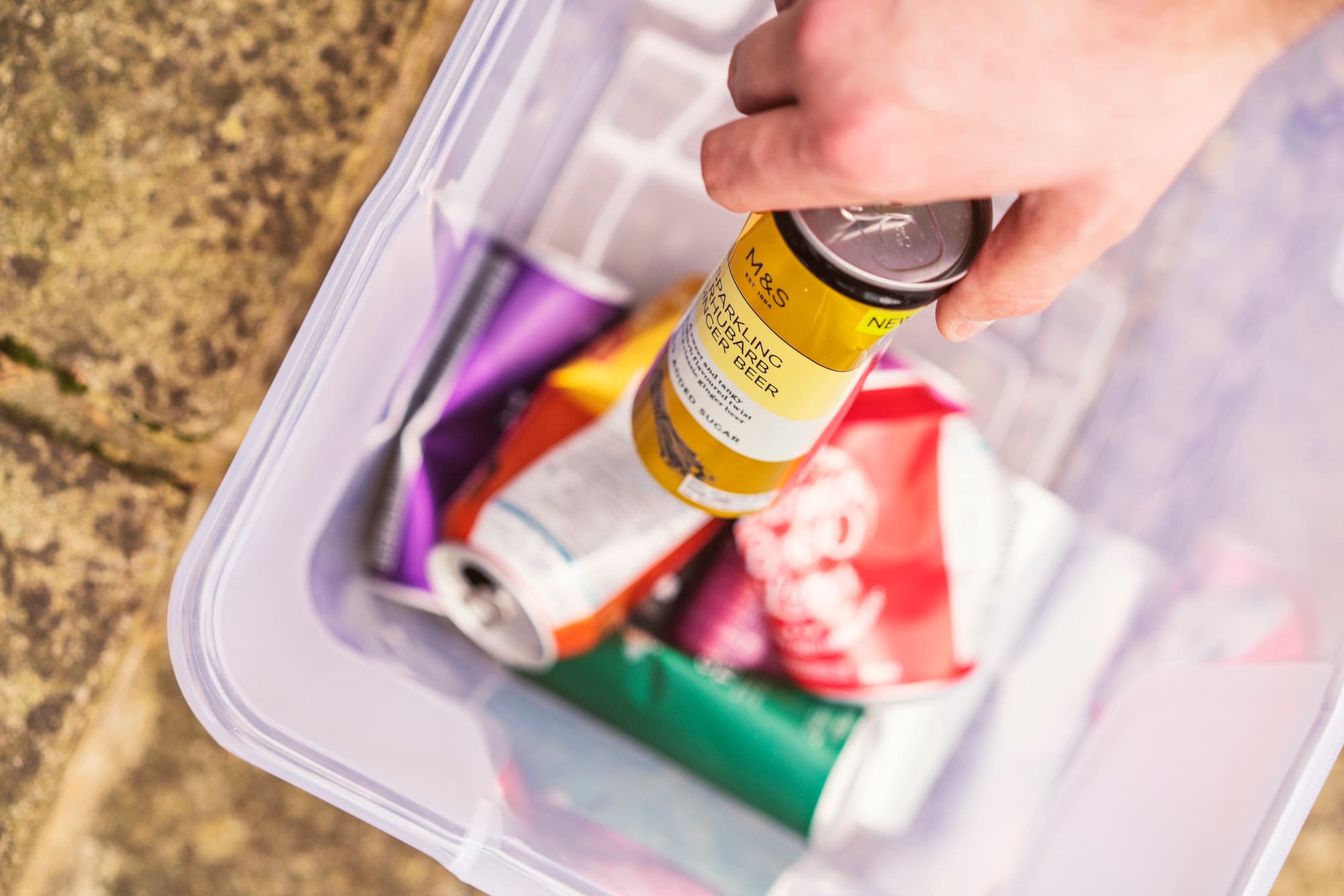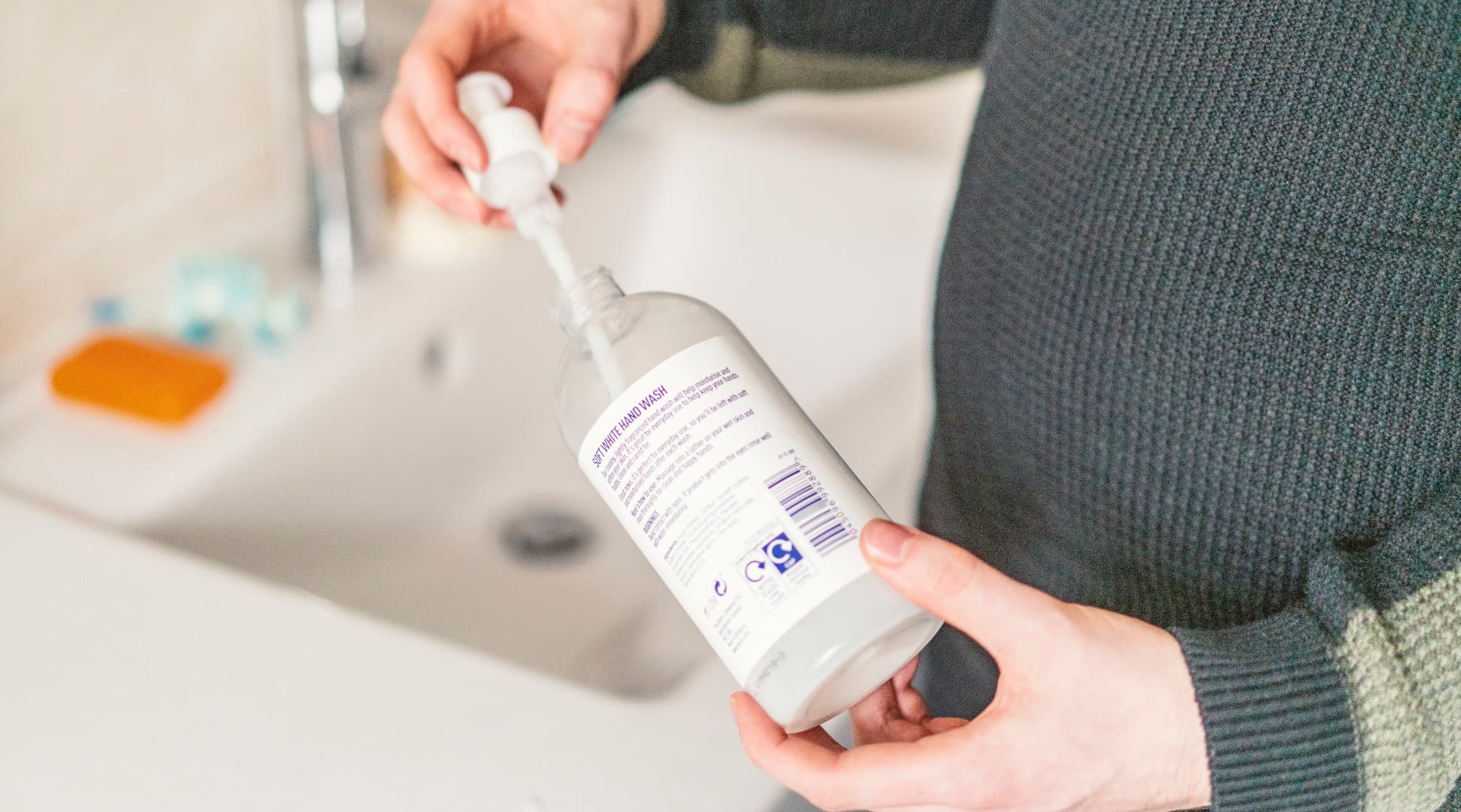To find out what happens to your recycling once it’s been collected by your local council, visit My Recycling Wales where you can browse Welsh local councils and see what happens to your recycling across the UK, and even around the world.
My Recycling Wales is funded by Welsh Government and sustainability experts WRAP Cymru to provide you with information on what happens to your recycling. The site shows how much recycling your local council collects each year and its reported fate.
Find out how your recycling is collected, sorted and processed.
Collection at kerbside
Recycling collection services vary across Wales. The factors that influence these services include whether the area is urban or rural, the different types of housing and the facilities available to process your recycling.
Broadly there are three scheme types:
'Kerbside sort' schemes where residents sort their waste and place their recyclable items into separate containers for different types of material, such as cardboard, paper, cans and tins, glass bottles and jars, and plastic bottles, pots, tubs and trays. These containers are then emptied by collection crews into their respective ‘compartments’ on the recycling collection lorry at the kerbside;
'Two-stream' schemes where cardboard and paper are collected in one container, and cans and tins, glass bottles and jars, and plastic bottles, pots, tubs and trays are collected in another container;
'Co-mingled' collection schemes where recyclable materials are collected in the same container and put into one single container on the recycling collection lorry before being taken to a Materials Recovery Facility (MRF) and sorted.
Processing at a Materials Recovery Facility (MRF)
Councils with co-mingled collection schemes take their recycling to a MRF. All the mixed recycling is sorted and separated into different types and grades of materials by hand or machine (or both). Some MRF grade materials then undergo a further sort before being sent to reprocessors who produce the components for new products.
The machinery, processes and materials that each MRF can accept vary. Once materials have been sorted and depending on contamination levels, recycled materials can become valuable commodities in the worldwide market.
Whereas those councils operating kerbside sort collections can send their recyclates directly to a reprocessor and realise the full financial value of the materials they collect. This isn’t the case for co-mingled collections because a gate fee/processing cost is payable.
Example MRF Sorting Process
Sorting begins by removing any non-recyclable items;
A vibrating machine separates the cardboard and paper – different types of paper are sorted by hand and then baled;
The remaining recyclables continue on another conveyor where steel cans are removed using magnets;
Different types of plastic are identified and separated using visual scanners;
A special kind of magnet called an ‘eddy current’ is used to sort aluminium cans;
Glass is the remaining material, which drops off the end of the conveyor into a large container;
Once separated, the materials are taken for reprocessing at specialist factories, ready to be turned into new products.
Problems caused by contamination
When incorrect or dirty items are put in the recycling container they have to be removed by hand, otherwise the quality of the recycling would be reduced, affecting the markets into which it can be sold. This slows down the process and, if items are missed, it can clog or damage the machinery and other equipment.
The materials collected for recycling vary from area to area, so although an item of packaging may include an instruction that says it’s recyclable, only put it out for collection if your local council has confirmed that they can accept it.
Check what you can put in your recycling containers at home
What happens to my food waste?
The best thing we can do with our food is enjoy it… but some food waste like eggshells, banana skins, meat and fish bones and tea bags is unavoidable.
It’s important we all recycle our food waste. All local councils in Wales collect food waste weekly, with the service now available to over 99% of the Welsh population.
Anaerobic digestion
If you don’t recycle your food waste, its potential is lost forever. To avoid this, local councils in Wales collect food waste weekly. Once collected, our food waste is usually treated by using a process known as anaerobic digestion. This process uses microorganisms called ‘methanogens’ to break down food waste inside an enclosed tank, alongside farm animal manures and energy crops. As it breaks down, it produces biogas, which is collected and used to generate green energy including electricity, heat and transport fuels. It also creates bio-fertiliser that can be used in farming and for land regeneration.



